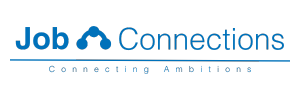Making the Most of Job and Career Fairs
Tips for your visit to the fair
Job and career fairs are a great opportunity to actively shape your career. They offer direct contact with potential employers, numerous networking opportunities with experts and insights into industries and trends. The combination of personal exchange, exciting program items and helpful services make them a valuable tool in career planning.
Why you should make use of career fairs
Whether you are looking for a job, thinking about changing careers or want to expand your professional network – career fairs address precisely these points. They enable you to:
- Get in direct contact with employers
Career fairs give you the opportunity to talk directly to HR managers without having to go through a lengthy application process. A personal interview can often achieve more than a conventional application and takes place in the relaxed atmosphere of a fair, which allows for an uncomplicated exchange.
- Build or expand networks
Making contacts is essential for professional success. Career fairs offer you the opportunity to get in touch with both companies and experts.
- Discover current trends and developments
In addition to the direct job search, you can find out more about current developments in your industry. Exciting presentations and workshops round off the program and provide inspiration for your professional development.
- Use free services
Many career fairs offer free application checks or consultations to help you sharpen your profile.
How to get the most out of your visit at the career fair
To ensure that your career fair visit is a complete success, you should follow a few essential steps. The key lies in careful preparation, confident appearance and convincing conversations as well as targeted follow-up.
- Preparation is (almost) everything
Find out about the participating companies in advance and think about which ones are of particular interest to you. Prepare specific questions to come across as professional and motivated when talking to HR managers. Familiarize yourself with the fairgrounds and plan your visit so that you visit the most promising companies first – this way you won’t waste valuable time at the end of the day. Some career fairs, especially online events, require you to book interviews in advance. However, don’t take on too much so that you can also make us of other program items.
Tip: For online career fairs, technical equipment is crucial. Make sure you have a stable internet connection and that your camera and headset are ready and working.
- Polish up your CV
Your CV is your ticket to the interview. Print out several copies or make sure you have a digital version to hand on your cell phone. Your profile on a career portal should also be up to date. If you don’t have one yet, now is the perfect time to create one. Recruiters like to take a closer look at it.
- Be authentic and self-confident
Think in advance about how you can present yourself as convincingly as possible in just a few sentences – a so-called elevator pitch. It is important that you remain authentic and approach others openly. This is the only way to make contact with important people who will remember you positively. Make sure you have a well-groomed appearance, because first impressions count!
- Ask questions
Career fairs give you the opportunity to talk to employers in a relaxed setting. Use this chance to ask HR managers and employees from different departments specific questions that will give you valuable insights into relevant vacancies, corporate culture and everyday working life. Don’t forget to ask for a business card and add interesting contacts directly to your career profile.
Tip: With business cards, it is important to observe certain etiquette so as not to appear rude. Hold the business card with both hands, take a moment to read the most important information on it and possibly ask questions. Treat the card with respect afterwards and don’t just put it in your pocket, as this could signal a lack of interest.
- Use the supporting program
Career fairs not only offer the opportunity to network, but also score points with lectures, workshops and other free program items. Find out in advance to make sure you don’t miss anything on the day of the event. Also note that registration may be required for certain program items. The rule here is: less is often more. Don’t lose focus and remember that your main goal is to network and make contacts!
- Don’t forget to follow up
After the fair, don’t forget to thank the people you spoke to – ideally by email or via your career platform. If there are currently no suitable positions available at the companies relevant to you, write a speculative application to signal your commitment and be remembered.
Conclusion
Job and career fairs are an indispensable tool for anyone who wants to actively advance their career. Whether you are looking for a new professional challenge, want to expand your network or find out about industry trends, career fairs offer you numerous opportunities.
The key to a successful career fair visit lies in the right preparation, active networking and thoughtful follow-up. Use the opportunity to present yourself authentically, ask questions and take advantage of additional offers such as workshops or application checks.
With the right approach, you can get the most out of your visit and make valuable contacts that will have a lasting positive impact on your professional future.

